In South Carolina, there are three options for schooling children from home. These include forming a district-approved homeschool, homeschooling through the support of the South Carolina Association of Independent Home Schools, or homeschooling under another homeschool association that meets specific requirements.
History
South Carolina, in the southern United States, legalized homeschooling in 1988. This is one of several states with multiple homeschool options, including homeschooling with approval from the local school district or through a local homeschool association.
Regulation
In South Carolina, there are three options for schooling children from home. These include forming a district-approved homeschool (option 1), homeschooling through the support of the South Carolina Association of Independent Home Schools (option 2), or homeschooling under another homeschool association that meets specific requirements (option 3). The state requires parents who elect to homeschool their children, ages 5 to 17, to agree in writing that they will not hold the district responsible for any “educational deficiencies” experienced by homeschooled students. Specific requirements differ according to the homeschool option chosen. This summary focuses on the options that involve a local homeschool association.
Parents who direct their children’s education at home must have at least a high school diploma or GED. Instruction in core subjects is required. Homeschooled students must receive instruction for a minimum of 180 days a year, but there are no specifications on hours, days of the week, etc. Under option three, parents must keep attendance records, a plan book, a portfolio of student work, and evidence of progress. Homeschooled students are required to participant in statewide assessments (except for options 2 and 3).
Homeschooled students may ask for permission to participate in extracurricular activities only and must meet several district requirements. Access for nonpublic students is restricted. According to South Carolina policy, homeschooled students with special needs are not eligible for special services since they are no longer enrolled in public schools. District-approved homeschooled students who fail to progress may receive special services at the parents’ expense.
State Data
South Carolina publicly reports annual homeschool participation, and data is available starting in 2011. For example, around 11,000 students were homeschooled in 2011, which increased to almost 32,000 by 2022. This is one of a few states where homeschool participation continued to grow after the pandemic. The state also reports disaggregated homeschool participation information by district, grade, and homeschool option.
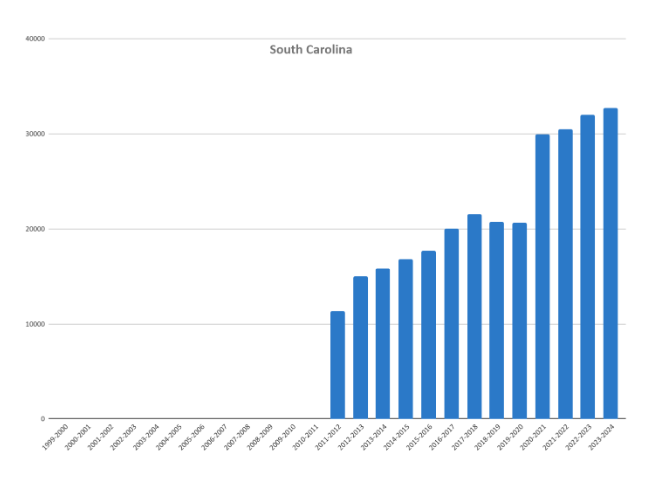
Similarly, U.S. Census estimates indicate that around 6.4% of South Carolina families homeschooled in the spring of 2020 and increased to 13.2% by the fall of 2020. These percentages are higher than the national averages of 5.4% and 11.1% at that time. Based on U.S. Census data, our calculations indicate that about 6.74% of K-12 students in South Carolina were homeschooled during the 2022-23 school year, and 8.00% during the 2023-24 school year. Due to survey changes, the data from 2020 reflects the percentage of households, while the data from following years reflects the percentage of students.
Cross-Sector Comparison
During the 2019-20 academic year, 2.4% of South Carolina’s K-12 students were homeschooled. Homeschool participation in the state was less than half of the 5.9% of students attending private schools. The percentage of students attending charter schools in South Carolina was only slightly lower than that of students attending private schools, at 4.6%. In 2021-22, 3.5% of South Carolina’s K-12 students were homeschooled, 6.8% of students attended private schools, and 5.7% attended charter schools.
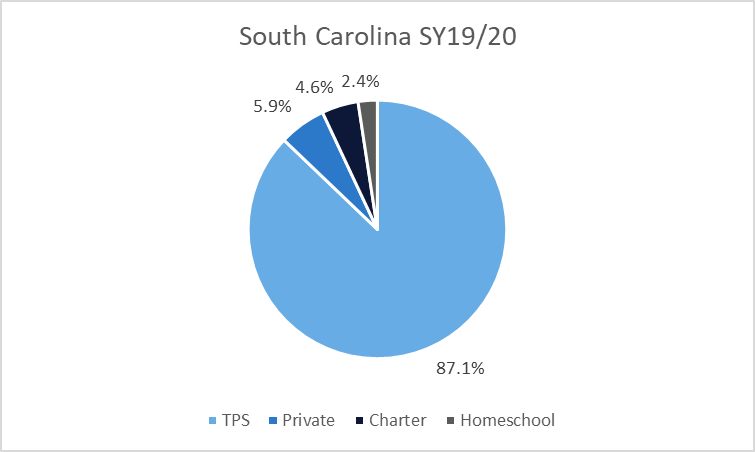
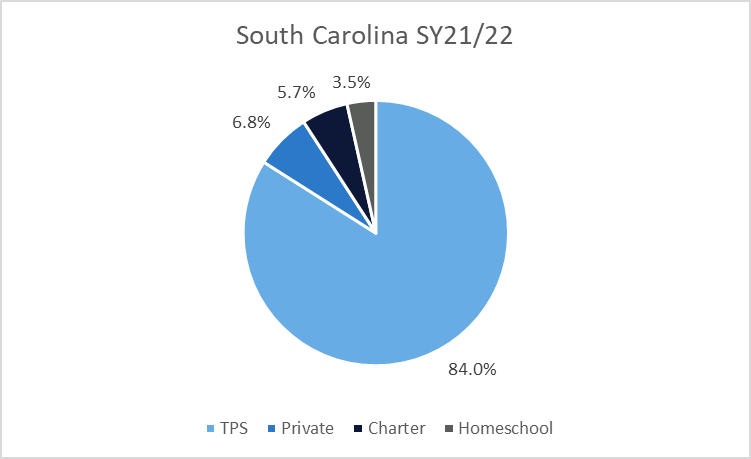
School Choice Context
In addition to homeschooling, parents in South Carolina have several educational choices. These options include enrollment in traditional public schools through inter- and some intra-district choice, charter, and magnet schools. Students also have access to three private school choice funding options, including two tax credit programs for students with special needs and a new education savings account. The South Carolina Education Scholarship Trust Fund Program passed in 2023 and will launch in 2024. However, homeschooled students are not eligible unless they are either kindergarten-aged or attended public school the previous year.
Commentary
South Carolina could expand educational opportunities for all students by providing more access to courses, sports, and extracurriculars offered at local public schools, as many other states do.
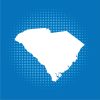
-
13.2% Families
Around 13.2% of families in South Carolina homeschooled during the height of the pandemic (Fall 2020).
-
1988 Legalized
Homeschooling was legalized in 1988 in the state of South Carolina.
-
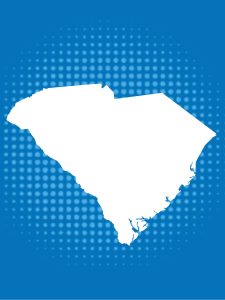
-
More Information
13.2% Families
Around 13.2% of families in South Carolina homeschooled during the height of the pandemic (Fall 2020).
1988 Legalized
Homeschooling was legalized in 1988 in the state of South Carolina.

More Information
Last updated March 2025.